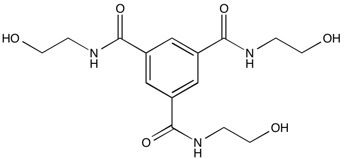Feed Your Brain: How Food Impacts Mental Health

Dopamine, serotonin, and brain-derived neurotrophic factor (BDNF) are three critical neurotransmitters that play a significant role in our mental health and well-being. Dopamine is involved in motivation, reward, and pleasure, while serotonin helps regulate mood, sleep, and appetite. BDNF, on the other hand, is responsible for the growth and development of new neurons, which is essential for learning, memory, and overall brain health.
Interestingly, the food we eat can have a profound impact on the levels of these neurotransmitters in our brain. Certain foods can either increase or decrease the production and availability of dopamine, serotonin, and BDNF. Understanding how food affects these neurotransmitters is crucial for maintaining optimal mental health and well-being.
In this deep dive, we will explore how food affects dopamine, serotonin, and BDNF and provide tips on how to ensure adequate levels of these neurotransmitters through diet.
Dopamine and Food:

Dopamine is a neurotransmitter that is essential for motivation, reward, and pleasure. It is often referred to as the "feel-good" neurotransmitter because it is involved in our brain's reward system. Dopamine is released when we experience something pleasurable, such as eating delicious food, listening to music, or spending time with loved ones.
Certain foods can increase dopamine levels in the brain. Foods that are high in sugar, fats, and protein are known to stimulate dopamine production. When we consume these foods, our brain releases dopamine, which creates a sense of pleasure and reward.
However, overconsumption of these foods can lead to addiction and decreased dopamine sensitivity. This means that over time, we need more and more of these foods to achieve the same level of pleasure and reward. This can lead to unhealthy eating patterns, weight gain, and even addiction.
To maintain healthy dopamine levels, it is essential to consume these types of foods in moderation. Opt for whole, unprocessed foods that provide a variety of nutrients and avoid overindulging in sugary, fatty, or high-protein foods. Additionally, incorporating physical activity into your routine can also increase dopamine production in the brain.
Serotonin and Food

Serotonin is a neurotransmitter that is responsible for regulating mood, sleep, and appetite. It is often referred to as the "happiness" neurotransmitter because it helps us feel calm, relaxed, and happy.
Carbohydrates can increase serotonin levels in the brain. Specifically, foods that are high in tryptophan, an amino acid that is a precursor to serotonin, can increase serotonin production. Foods such as bananas, oats, and whole grains are high in tryptophan and can help boost serotonin levels.
However, it's important to note that not all carbohydrates are created equal. Highly processed and refined carbohydrates, such as white bread and sugary snacks, can lead to spikes in blood sugar and insulin levels, which can have a negative impact on serotonin production.
Serotonin imbalances can occur when there is either too little or too much serotonin in the brain. This can lead to a variety of mental health issues, such as depression, anxiety, and mood disorders.
To maintain healthy serotonin levels, it's important to consume a balanced diet that includes complex carbohydrates, such as whole grains and fruits, as well as lean protein and healthy fats. Additionally, regular exercise, adequate sleep, and stress reduction techniques, such as meditation, can also help regulate serotonin levels and promote overall mental health.
BDNF and Food

Brain-derived neurotrophic factor (BDNF) is a protein that plays a critical role in the growth and development of new neurons in the brain. Low levels of BDNF have been associated with depression, anxiety, and cognitive decline. Fortunately, certain foods can help increase BDNF levels, providing potential benefits for mental health.
Definition of BDNF
BDNF is a protein that promotes the growth and survival of neurons in the brain. It's essential for the development and maintenance of the nervous system, as well as for learning and memory.
Foods that increase BDNF
a) Omega-3 fatty acids: Omega-3 fatty acids are essential fats that the body can't produce on its own. They are found in fatty fish, such as salmon, as well as in nuts and seeds like flaxseed and chia seeds. Research has shown that omega-3s can increase BDNF levels and improve brain function.
b) Antioxidants: Antioxidants are compounds that protect the body against damage from free radicals. They are found in many fruits and vegetables, such as blueberries, spinach, and kale. Studies have shown that antioxidants can increase BDNF levels and improve cognitive function.
c) Flavonoids: Flavonoids are plant compounds that have been shown to have antioxidant and anti-inflammatory properties. They are found in many fruits and vegetables, as well as in tea, wine, and chocolate. Research has shown that flavonoids can increase BDNF levels and improve brain function.
Potential benefits of BDNF on mental health
Research has suggested that higher levels of BDNF may be associated with better cognitive function, improved mood, and reduced risk of neurological disorders like Alzheimer's disease. By eating foods that increase BDNF levels, we may be able to improve our mental health and overall well-being.
How to Ensure Adequate Levels of Dopamine, Serotonin, and BDNF through Diet
To ensure adequate levels of dopamine, serotonin, and BDNF through diet, it is important to focus on consuming a balanced and varied diet that includes the right types of foods.
For dopamine, it is recommended to consume foods that are rich in tyrosine, an amino acid that is a precursor to dopamine production. These foods include high-protein sources such as lean meats, fish, eggs, and dairy products. It is important to note that while these foods can increase dopamine levels, overconsumption can lead to addiction tendencies and decreased sensitivity.
For serotonin, it is recommended to consume foods that are high in tryptophan, an amino acid that is a precursor to serotonin production. These foods include complex carbohydrates such as whole grains, fruits, and vegetables, as well as foods that are high in tryptophan such as bananas, oats, and turkey. It is important to consume these foods in moderation as overconsumption can lead to serotonin imbalances and affect mental health.
For BDNF, it is recommended to consume foods that are rich in omega-3 fatty acids, antioxidants, and flavonoids. These include fatty fish such as salmon, nuts and seeds, dark chocolate, and blueberries. It is important to consume a variety of these foods as well as maintain a balanced and varied diet overall.
Tips for incorporating these foods into meals and snacks include meal planning and preparation, incorporating these foods into recipes, and snacking on foods such as nuts, seeds, and fruits throughout the day. It is also important to be mindful of portion sizes and to balance these foods with other nutrient-dense foods such as whole grains and vegetables.
By focusing on a balanced and varied diet that includes foods rich in tyrosine, tryptophan, omega-3 fatty acids, antioxidants, and flavonoids, it is possible to ensure adequate levels of dopamine, serotonin, and BDNF. This can have a positive impact on mental health and overall well-being.
Top 5 Foods

For Dopamine Regulation:
- Eggs: Eggs contain the amino acid tyrosine, which is a precursor to dopamine production in the brain.
- Dark chocolate: Dark chocolate contains flavonoids that can increase dopamine levels and promote a sense of well-being.
- Nuts and seeds: Nuts and seeds are rich in tyrosine and other amino acids that can help to boost dopamine production.
- Bananas: Bananas are high in the amino acid tryptophan, which can be converted into dopamine.
- Lean protein: Lean protein sources, such as chicken, fish, and turkey, contain high levels of tyrosine and other amino acids that can help to increase dopamine production.
Top 5 Foods for Serotonin:
- Oats: Oats are high in tryptophan, which can be converted into serotonin in the brain.
- Salmon: Salmon is a good source of omega-3 fatty acids, which can help to increase serotonin levels.
- Nuts and seeds: Nuts and seeds are high in tryptophan and other amino acids that can help to boost serotonin production.
- Pineapple: Pineapple contains an enzyme called bromelain, which can help to increase serotonin levels.
- Eggs: Eggs are a good source of tryptophan and other amino acids that can help to boost serotonin production.
Top 5 Foods for BDNF:
- Fatty fish: Fatty fish, such as salmon and sardines, are high in omega-3 fatty acids that can increase BDNF levels.
- Blueberries: Blueberries are rich in antioxidants and flavonoids that can help to increase BDNF levels.
- Dark chocolate: Dark chocolate contains flavonoids that can help to increase BDNF levels and promote brain health.
- Spinach: Spinach is high in antioxidants and other nutrients that can help to increase BDNF levels.
- Turmeric: Turmeric contains curcumin, a compound that can increase BDNF levels and promote brain health.
Reflection
- Are you currently consuming enough of the recommended foods to support optimal dopamine, serotonin, and BDNF levels?
- Are you consuming too much of the "pleasure-inducing" foods that can lead to dopamine desensitization and addiction?
- Are you getting enough physical activity, which has been shown to increase BDNF levels?
- Are you getting enough quality sleep, which can impact both serotonin and dopamine levels?
- Are you experiencing symptoms of depression or anxiety that may be related to imbalances in these neurotransmitters, and could dietary changes potentially be a part of your treatment plan?